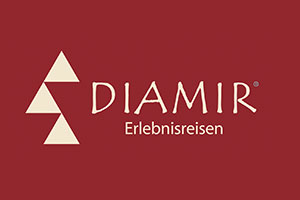Burundi
Reisetipps für Burundi
Top 5 Erlebnisse
Das kleine, gastfreundliche Land in Ostafrika besticht durch seine vielfältige Natur, von den Ufern des majestätischen Tanganjikasees bis zu den grünen Hügeln und Nationalparks. Zu den Highlights gehören:

Rusizi-Nationalpark
Der Rusizi-Nationalpark liegt an den Ufern des Tanganjikasees und zeigt die natürliche Schönheit Burundis. Der Park ist bekannt für seine vielfältigen Ökosysteme, darunter Feuchtgebiete und Savannen, und beherbergt eine Vielzahl an Wildtieren wie Flusspferde, Krokodile und zahlreiche Vogelarten

Karera-Wasserfälle
Die Karera-Wasserfälle im nordöstlichen Teil Burundis sind eine atemberaubende Naturattraktion. Die Wasserfälle stürzen über felsige Klippen, die von einer üppigen Vegetation umgeben sind.

Zentralmarkt von Bujumbura
Auf dem farbenfrohen Markt bieten einheimische Händler frische Lebensmittel, handgefertigtes Kunsthandwerk sowie traditionelle Textilien feil. Magische Fotomotive sind hier garantiert!

Gitega
Inmitten der Hügel Burundis liegt eine der beiden Hauptstädte des Landes, geschmückt mit historischen Wahrzeichen, die das königliche Erbe der Nation widerspiegeln.

Trommelvorführungen in Gishora
Die traditionellen Trommelvorführungen sind ein besonderes Klangerlebnis. Die Trommel ist in der burundischen Gesellschaft von großer kultureller Bedeutung und steht für Geschichte, Kommunikation und gemeinsame Feste.
Touristische Infrastruktur
Der internationale Flughafen Bujumbura ist das Hauptzugangstor für internationale Reisende.
Das Straßennetz verbindet die Großstädte miteinander, die Straßenverhältnisse können jedoch variieren. Zu den öffentlichen Verkehrsmitteln gehören Busse und Sammeltaxis.
Burundi bietet eine Reihe von Unterkunftsmöglichkeiten, darunter Hotels, Pensionen und Lodges in den Nationalparks. In der Hauptstadt Bujumbura gibt es eine Vielzahl von Hotels für unterschiedliche Budgets.
Klima
Die Trockenzeit dauert von Mitte Mai bis Anfang Oktober und von Januar bis Februar mit günstigen Reisebedingungen. Während der Regenzeiten von Mitte Oktober bis Dezember und von Februar bis Mitte Mai können starke Regenfälle zu Überschwemmungen und Erdrutschen führen, die unpassierbare Straßen und Brücken sowie erhebliche Verkehrsbehinderungen verursachen.
Visa
For entry requirements and visa information, please refer to the website of your respective embassy. Links provided below.
Eindrücke aus Burundi
(Zum Vergrößern anklicken)
Stories
International Hotel Chains Are Driving the Hotel Boom in Africa
Frankfurt, 03 April 2024 - The "Big 5" of global hotel chains - Accor, Hilton, IHG, Marriott International and Radisson ...
Internationale Hotelketten treiben den Hotelboom in Afrika voran
ReThinking Africa Initiative setzt sich für Investitionen in Afrikas Tourismuswirtschaft ein Frankfurt, 03. April 2024. Die „Big 5“ der globalen Hotelketten ...
Voice4Africa x ReThinking Africa News March
KLEBER Group x ReThinking Africa News March 2024 Content Foreword Investment in Africa's tourism industry as a driver for sustainable ...
Our partners in Burundi
Visa, Einreise und Updates
Current accessibility
Corona precautionary measures
Status: 03.03.2022












